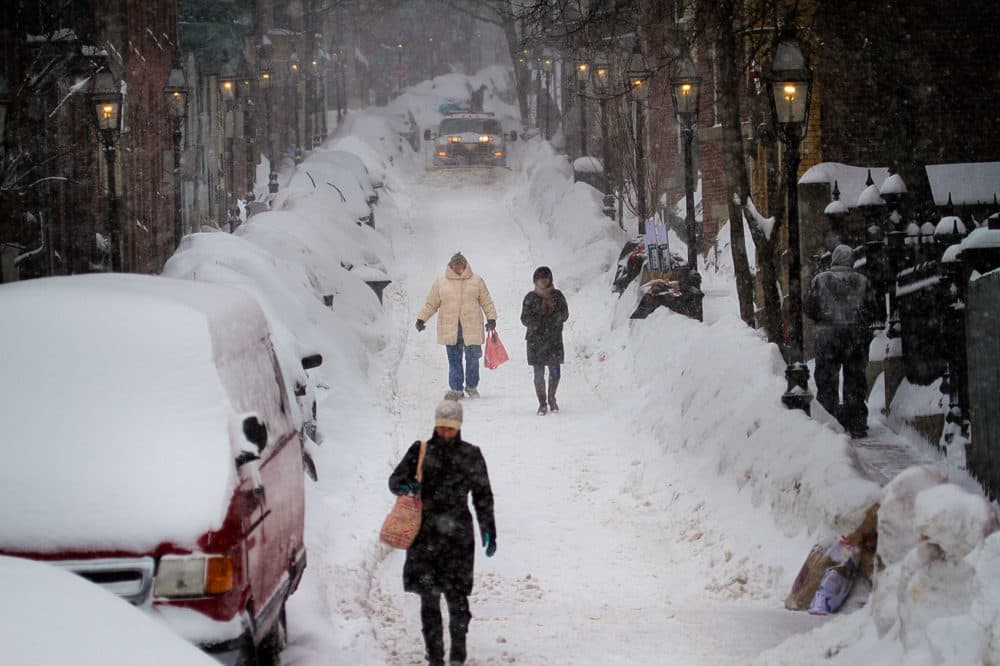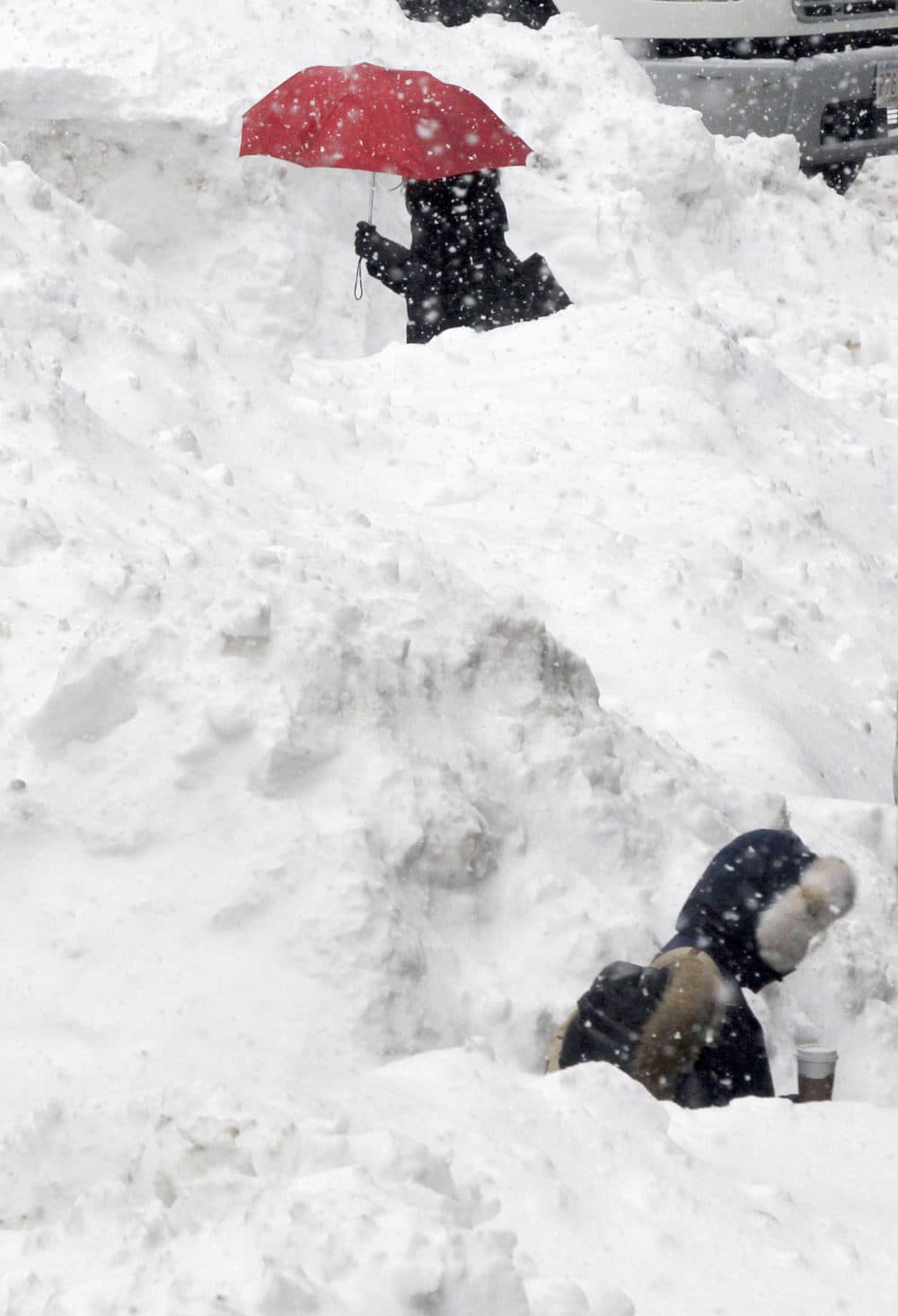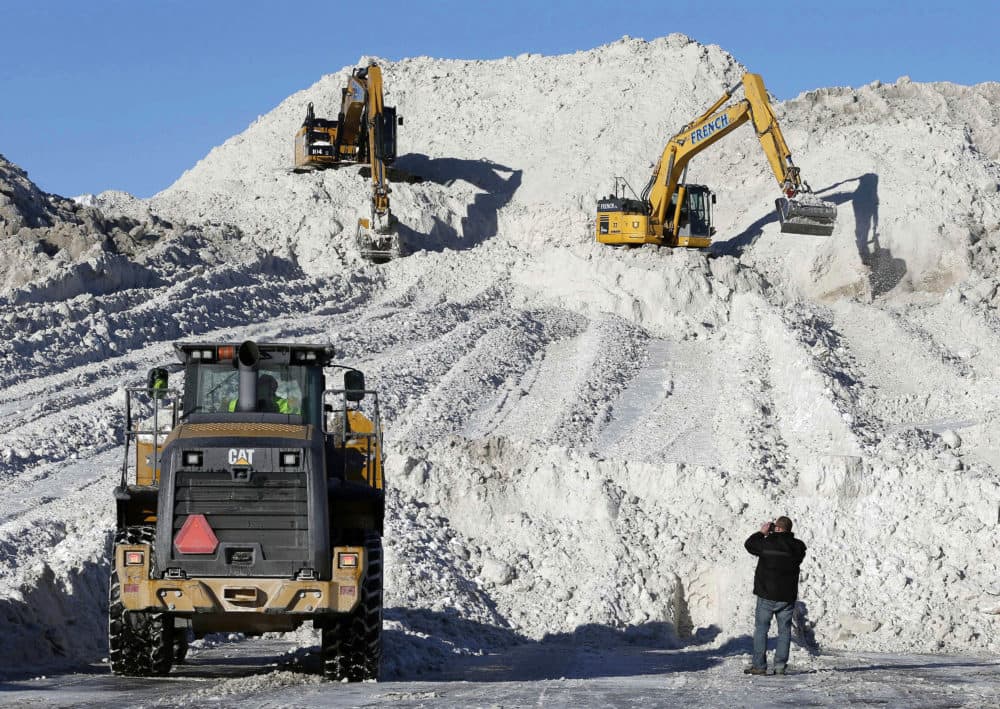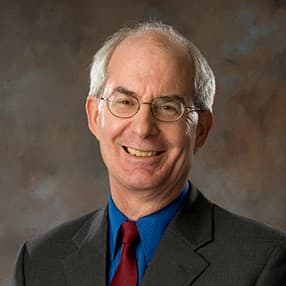Advertisement
Commentary
The Joy And Despair Of Winter In New England

“Game of Thrones” has nothing on New England. Winter isn’t coming; it’s arrived. The question we ask when the snow begins to fall: how are we going to cope?
Robert Frost endured many New England winters after he arrived here from his San Francisco birthplace in 1885. He quickly learned that the winters were long, cold and potentially lethal. His poem “Storm Fear” ends with the narrator wondering whether he, his wife and their child can “save ourselves unaided” after a big snowfall. That aid, in rural New England at the start of the 20th century, was more likely to involve animals than machines.

Today in New England, if the snow blower fails before the snow is cleared, we human animals have to break out the shovels and anticipate the sore muscles when we’re done. If our car skids off the road into a dazzling white drift, we call a tow truck to have it pulled out of the graying slush. And how will we “save ourselves unaided” while the children are home from school on snow days?
Frost wrote about the despair that accompanies the first snow of the season and the onset of winter. It can catch us unaware, with its promise of a long stretch of short days, dark moods and melancholy. This is the start of winter in Frost’s poem “The Onset”:
Always the same, when on a fated night
At last the gathered snow lets down as white
As may be in dark woods, and with a song
It shall not make again all winter long
Of hissing on the yet uncovered ground,
I almost stumble looking up and round,
As one who overtaken by the end
Gives up his errand, and lets death descend
Upon him where he is, with nothing done
To evil, no important triumph won,
More than if life had never been begun.
Had Frost ended his poem here, we would be left with a sense of dread, locked in the darkness of winter nights. Winter is here, and it will be a long, long time before there is any bare ground on which the wind can sing. The phrase at the end of the stanza, “if life had never been begun,” leaves us no hope.
Advertisement
But having taken us into the dark in the first 11 lines, the poem brings us back out:
Yet all the precedent is on my side:
I know that winter death has never tried
The earth but it has failed: the snow may heap
In long storms an undrifted four feet deep
As measured against maple, birch, and oak,
It cannot check the peeper’s silver croak;
And I shall see the snow all go downhill
In water as a slender April rill
That flashes tail through last year’s withered brake
And dead weeds, like a disappearing snake.
Nothing will be life white but here a birch,
And there a clump of houses with a church.
Winter snow might cover the ground and surround the trunks of trees, but only until it melts in the season of spring peepers, running off in a sinuous path through the dead brown stems of bracken fern, headed to the sea. The white blanket will be gone from the landscape, with only scattered trees and clapboards remaining white.

In Boston, even if we have a wicked cruel winter, the massive snow piles won’t last forever. (True, the snow of 2015 wasn’t completely gone until July, but it did melt before the next winter. We’re not accumulating glaciers here.)
Robert Frost, who was a farmer, naturalist and astronomer, as well as a poet, knew that the arrival of spring was as certain as the onset of winter. His poem gives us a New England version of yin and yang, a cycle of change, with a bit of one thing inside the other. The blanket of winter white encompasses, here and there, dark, dirty piles beside the road, but then the scene changes, and the dark green summer countryside includes, here and there, the white of birch, house and church.
Yes, winter is here. We have to deal with it, enjoy it if we can (like the wildlife on a warm afternoon in “A Winter Eden”), and be assured that the snow will eventually — inevitably — disappear. Spring is coming, too.
